The International Hearing Society (IHS) held its 66th annual convention on September 14-16 at the Atlanta Downtown Hilton. The convention, attended by approximately 400 hearing aid specialists, audiologists, and related professionals, featured an exhibition floor with over 60 companies and offered three pre-convention workshops, a dozen seminars, three keynotes, and the annual IHS Awards Gala.
As with all hearing care conventions during the past year, over-the-counter (OTC) hearing device legislation formed the backdrop for many discussions and educational seminars. IHS has opposed the OTC legislation, questioning the ability of consumers to test/categorize their hearing status, identify potentially life-threatening conditions that would warrant a physician referral, properly fit and use their own amplification devices, and maintain their aids with no instruction. The Society advocated for the removal from the bill of the word “hearing aid” and the federal pre-emption of state regulations, and also sought to limit OTC devices to only “mild” hearing loss (as opposed to the final bill’s “mild-to-moderate loss” language). As IHS President Rick Giles noted, numerous members wrote letters and emails, and called their Members of Congress. “There is still much work to be done,” says Giles, “and I promise you, as your IHS president, we will do everything humanly possible to fight for you, and the profession.”
Three pre-convention workshops were held on Thursday, September 13, providing early arrivers the opportunity to hone their clinical and business skills. Bopanna Ballachanda, PhD, and former IHS President Christopher Gustafson, ACA, BC-HIS, presented a 2-hour workshop about the outer ear, including physiology, pathophysiologic changes, and changes to hearing caused by insertion of hearing aids. A 2-hour afternoon workshop was presented by Wendy Switalski, AuD, MBA, that looked at best practices known to have a strong impact on patient satisfaction and outcomes, including speech-in-noise evaluations, real-ear measurements, and subjective and objective verification and validation techniques. The final workshop of the day was offered by Cindy Beyer, AuD, and Suzanne Younker, AuD, on the medical risks and liabilities associated with hearing aid dispensing. Thursday evening closed with an International Reception at the Trader Vic’s lounge in the Hilton, followed by a special event at the Georgia Aquarium hosted by the Georgia Society of Hearing Professionals and the Alabama Society for Hearing Healthcare Providers.
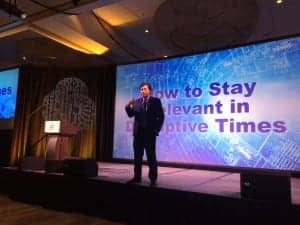
Six-time Emmy Award-winning comedian Ross Shafer spoke about entrepreneurialism and how to adapt to a constantly changing market.
Friday morning kicked off with an exceptionally entertaining and informative keynote breakfast presented by 6-time Emmy Award-winning comedian Ross Shafer. Shafer related humorous anecdotes of his life as an entertainer and owner/entrepreneur of several businesses and endeavors—including his “Cook Like a Stud” book which features pointers on how to prepare food using only garage and power tools. However, beneath the humor, he made a case for preparing for and adapting to change in any business, characterizing start-up companies as “peripheral visionaries.” He also emphasized the need to recognize the role women play in American consumerism—with $30-40 trillion of purchasing power—and the importance of finding, employing, and motivating Gen-Xers and Millennials with good people skills, which he loosely defines as workers who can “ask people to talk about themselves.”
Nine other educational seminars were offered on Friday, ranging from “Being Successful in a Managed Care Environment” by Doug Lewis, JD, PhD, AuD, MBA, and Nicholas Pitt to “Issues in Cognition, Audition, and Amplification” by Douglas Beck, AuD.
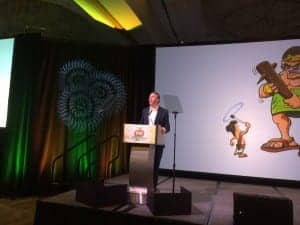
UK-based dispensing professional and consultant, Curtis Alcock, delivered insights into fighting Goliath’s in the field via what he calls “Guerrilla Earcare.”
On Saturday morning, the UK-based dispensing professional and consultant, Curtis Alcock, of the think-tank Audira, delivered insights into what he calls “Guerrilla Earcare.” He likened the current competitive environment of hearing healthcare to a David vs Goliath scenario, where dispensing professionals—like David— need to know their purpose, be the “people’s champion,” stay agile, and take the fight to where it can be won. Anything that can be commoditized and de-specialized will be, including several aspects of hearing care, says Alcock. He proposed that, by focusing on the aspirational communication objectives of the consumer, uniting people against communication barriers surrounding hearing loss, providing a range of hearing-related options, and concentrating on the human element of hearing healthcare, dispensing professionals can prevail against the Goliaths of mass retail, OTC, and other looming competitive threats.
Three more seminars were offered on Saturday afternoon, including a presentation by Kelly Tremblay, PhD, that looked at hearing aids, the brain, and hot topics in neuroscience, as well as a tutorial on audimetric testing and interpretation by Stephen Hallenbeck, AuD. The afternoon concluded with a keynote from Brig General Steve Richie who related military stories, emphasizing the importance of communication during the Vietnam War.
IHS Awards Gala. The IHS Awards Gala, hosted by the Society’s Membership & Marketing Manager Fran Vincent, honored members who have been with the organization for decades, and others who have distinguished themselves in their work in the hearing care profession.
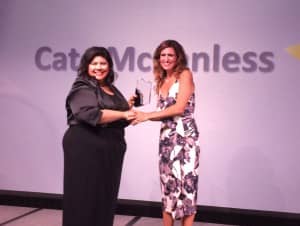
IHS Membership & Marketing Manager Fran Vincent presents Kate McCanless with the James P. Lovell Award.
Kate McCanless was presented with the James P. Lovell Award for her work in the Fit to Serve campaign which was designed to enable the Department of Veterans Affairs to hire hearing aid specialists to provide services and encourage their use in the contract network. HR 3471 was passed into law in December.
The IHS Chapter of the Year Award was presented to the Georgia Society of Hearing Professionals, represented by its president Jason Murphy, which has grown its membership through constant communication with its members and recently defeated a bill (SP 154) that may have led to the deregulation of dispensing licensure in the state.
The Hearing Review Professional Leadership Award was presented to Rick Frasier, BC-HIS, who has used his professional and entrepreneurial skills to build Frasier Enterprises, one of the nation’s largest hearing aid dispensing networks.
New educational materials from IIHIS. The new Distance Learning for Professionals in Hearing Health Sciences course and Trainer Manual are now available. The new course is designed for those considering a career in hearing healthcare, and consists of the Professional Training Workbook (6th edition), the Professional Training Textbook (3rd edition), and an online learning system with 39 lesson tests, revamped final exam, digital flashcards, relevant articles aligned to the lessons, and recorded webinars. Members of the International Institute for Hearing Instrument Sciences (IIHIS) who developed the material included committee chair Douglas Lewis, JD, PhD, AuD, MBA; Douglas Beck, AuD; Jean Duncan, MSc; Chris Gustafson, ACA, BC-HIS; Kathy Harvey-Jones, MsED, BC-HIS; Edward Lybarger, BC-HIS; and Tammy Miller.
It was also announced that the former distance learning materials (ie, the 5th edition manual and 2nd edition textbook) are being discontinued, so coursework and the exam to receive the Certificate of Completion must be completed no later than December 31, 2017.
Additionally, in January, a new 70-page publication titled A Hearing Healthcare Professional’s Guide to Third Party Participation will be available. The guide features “how-to” information on billing and credentialing, verifying patients, appealing denials, obtaining Medicare denials, a review of related state and federal programs and laws, and more. Some of the material was previewed in the convention seminar “Being Successful in a Managed Care Environment” by Doug Lewis, JD, PhD, AuD, MBA, and Nicholas Pitt.
The Society’s President Elect is Todd Beyer, ACA, BC-HIS; Dr Antonio Calderon, MD, BC-HIS, serves as treasurer; Annette Cross, BC-HIS, is secretary, and Scott Beall, AuD, BC-HIS, is immediate past-president. Territorial governors include Michael Andreozzi, BC-HIS, Jordan McMillin, BC-HIS, Douglas Dunker, ACA, BC-HIS, John “Clell” Hamm, BC-HIS, Patrick Kochanowski, ACA, BC-HIS, Don Tucker, ACA, BC-HIS, and Susan Waite, BC-HIS, in addition to Dr Calderon and Cross. The Society’s executive director is Kathleen Mennillo, MBA.
Next Year. The 67th annual IHS Convention will be held September 13-15, 2018 in Glendale, Ariz. For more information, visit: http://ihsinfo.org

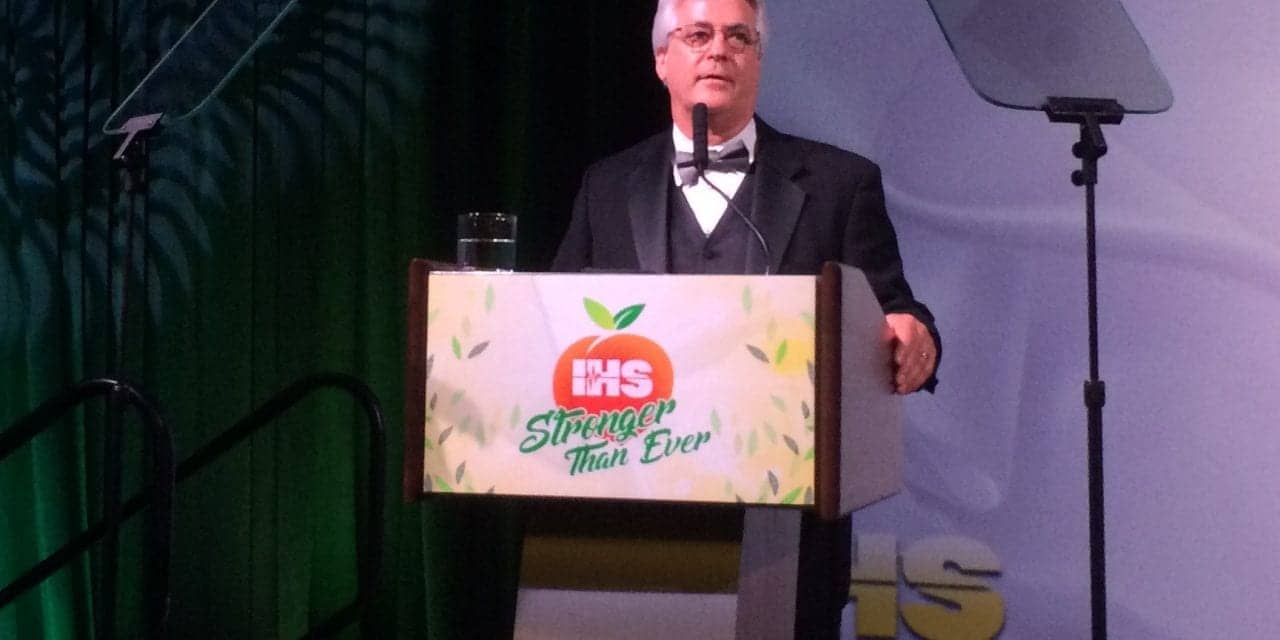
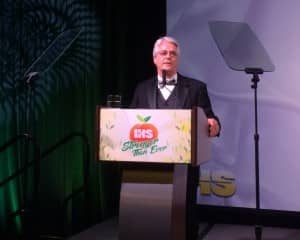
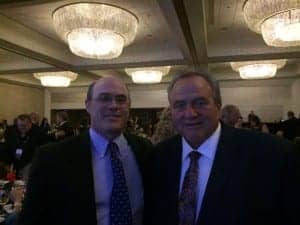


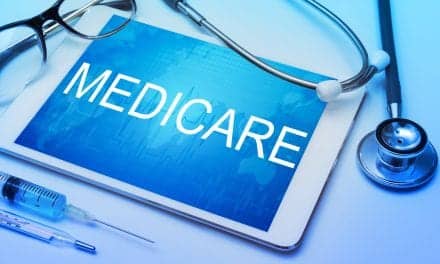
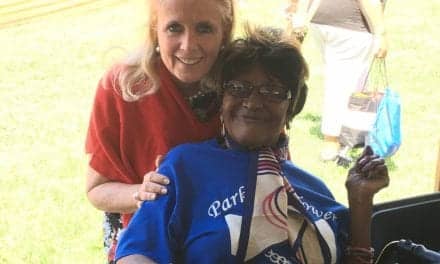
It is now below my professional dignity to be part of this wasteful enterprise. I have helped the IHS in the past with many tools for the benefit of the hearing aid dispensing community. I also teach MD’s and audiologists, and individuals seeking a new start. IHS is well aware of my contributions, but they have lost their vision and energy.
IHS did provide a yeoman service for hearing aid dispensers and allied professionals like audiologists in the past. However the organization got caught up in politics and tried to steal the spotlight from organizations like AAA and ASHA. The results was that no work got done.
OTC’s are here to stay, and the seeds have been implanted by powerhouses like Apple, Samsung and Bose. IHS does not stand a chance in fighting them and is spending our resources unnecessarily in what is a fruitless venture. It should be spending more money on training through seminar like events instead of politicking to justify their continuance. it should use money on national advertising against the pitfalls of using OTC, instead of crusading against the government. The hearing aid dispensing is slowing shrinking and diminishing in its scope as electronics take the place of hearing care. The fight ahead should be the embrace of this new direction.
Funny, I tried to look you up on the IHS website and you’re not even a member. So, you’re clearly not in the loop and not invested in making a difference either way.